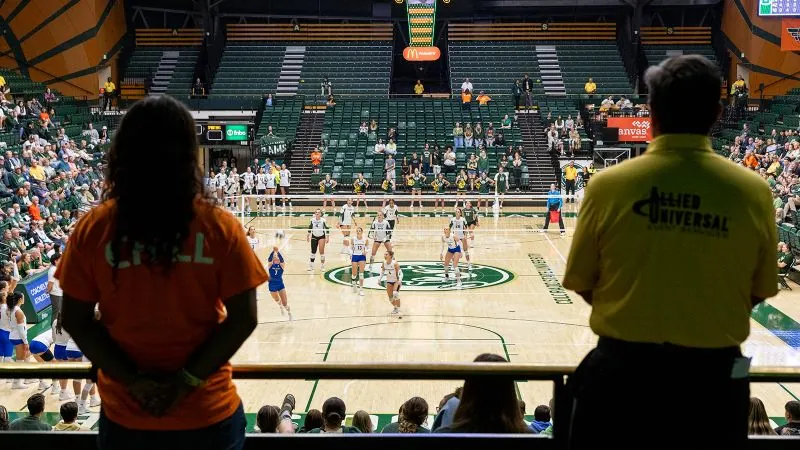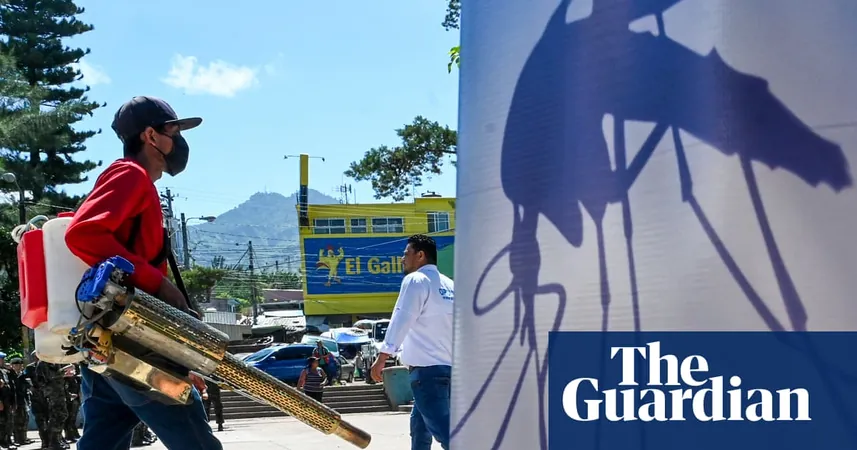
Controversy Erupts as Boise State Withdraws from Mountain West Volleyball Tournament Over Transgender Issues
2024-11-29
Author: Ling
In a surprising turn of events, Boise State’s women’s volleyball team has officially withdrawn from the Mountain West Conference Championship match against San Jose State University (SJSU). This withdrawal comes amidst an escalating controversy centered around a transgender player on the SJSU team, sparking heated debates about gender and fair competition in women’s sports.
Boise State did not elaborate on specific reasons for their decision, but this marks a continuation of their prior boycotts against matches with SJSU during the regular season. Due to these withdrawals, SJSU secured six forfeit victories throughout the season. Boise State reiterated in a statement that their team, having faced significant challenges, deserved better support and a system that accommodates all athletes.
San Jose State expressed disappointment over Boise State's withdrawal, emphasizing their commitment to civil discourse and respect for all athletes. In light of this situation, SJSU's women’s volleyball team is preparing to compete in the finals of the tournament, despite the controversy overshadowing the event.
The issue traces back to last spring, with rumors surrounding the gender identity of the SJSU player igniting a series of reactions. A significant escalation occurred earlier this month when another SJSU player, along with athletes from two other institutions, filed a lawsuit aimed at blocking the transgender athlete from competing. Yet, a federal judge ruled in favor of the athlete’s right to compete, a decision subsequently upheld by an appeals court.
This situation has not only drawn attention on the court but has also caught the eye of political figures, particularly Republican governors from Idaho, Nevada, Utah, and Wyoming, who have expressed support for teams boycotting against SJSU, citing concerns over fairness in women’s sports. Conversely, Mountain West Conference Commissioner Gloria Nevarez highlighted the eligibility of the player in question, asserting that they conform to the standards for competing in women’s collegiate sports.
The atmosphere of tension surrounding this issue seems to reflect broader societal debates about gender identity in sports, stirring fierce opinions and drawing in figures from various sectors, including politics. These ongoing discussions underscore the changes sports organizations may need to confront as they evolve policies in response to these realities.
As Boise State reflects on their decision and the implications it has within the sporting community, San Jose State advances to the championship finale, ready to confront either Colorado State or San Diego State in a highly anticipated match that may now be overshadowed by ongoing discussions about inclusion and fairness in athletics.
With the eyes of the nation watching, this event may well serve as a pivotal moment in the conversation around transgender athletes in collegiate sports, igniting further debates about equity and representation in women’s athletics. Could this controversy change the landscape of women’s sports forever? Time will tell.





 Brasil (PT)
Brasil (PT)
 Canada (EN)
Canada (EN)
 Chile (ES)
Chile (ES)
 España (ES)
España (ES)
 France (FR)
France (FR)
 Hong Kong (EN)
Hong Kong (EN)
 Italia (IT)
Italia (IT)
 日本 (JA)
日本 (JA)
 Magyarország (HU)
Magyarország (HU)
 Norge (NO)
Norge (NO)
 Polska (PL)
Polska (PL)
 Schweiz (DE)
Schweiz (DE)
 Singapore (EN)
Singapore (EN)
 Sverige (SV)
Sverige (SV)
 Suomi (FI)
Suomi (FI)
 Türkiye (TR)
Türkiye (TR)